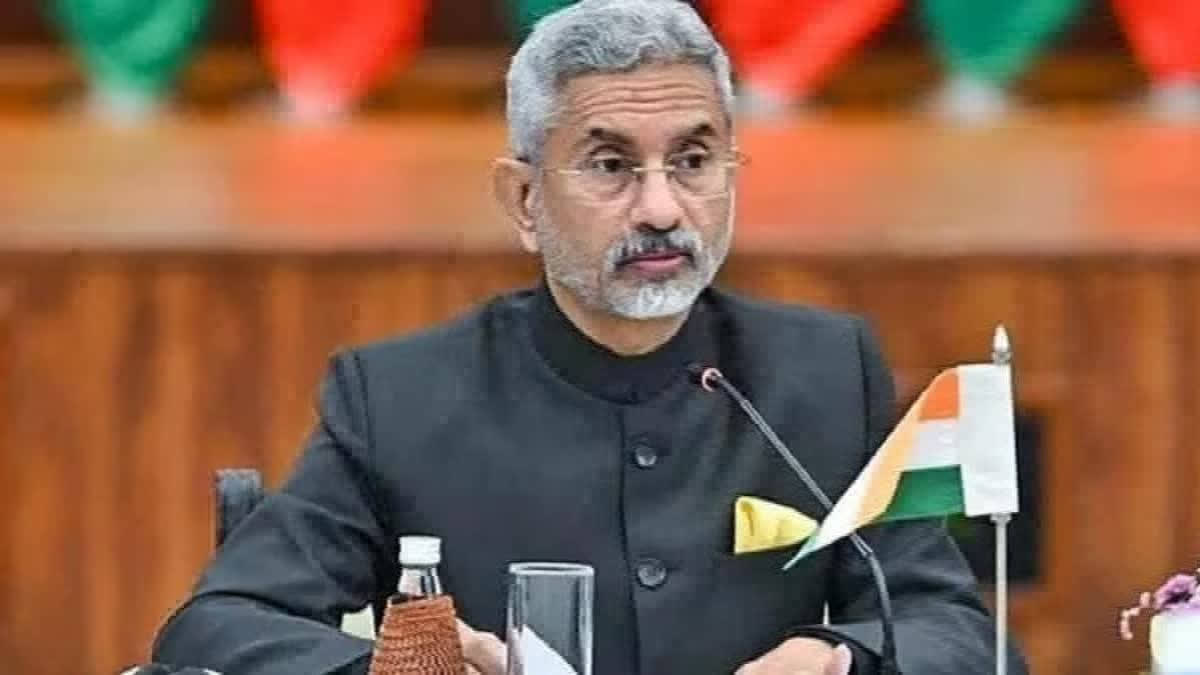New Delhi: At the BRICS Plus summit on Thursday, External Affairs Minister Dr. Jaishankar emphasized India's call for reforms in the UN Security Council, both in permanent and non-permanent categories. He also highlighted the need to modernize multilateral development banks, citing their outdated procedures akin to those of the UN.
He stated, "Reforming established institutions and mechanisms, particularly the UN Security Council in both permanent and non-permanent categories, is essential. The multilateral development banks also require updates, as their procedures are as outdated as those of the UN. India began this effort during its G20 Presidency, and we’re pleased to see Brazil take forward it."
Listing out the five points while advocating for a more equitable global order, EAM Jaishankar said, "BRICS can make a difference for the Global South." "We face the paradox that even as forces of change have advanced, some longstanding issues have only become more complex."
On the one hand, there is a steady diversification of production and consumption. Nations that attained independence from colonialism have accelerated their development and socio-economic progress. New capabilities emerged, facilitating the harnessing of more talent. This economic, political and cultural rebalancing has now reached a point where we can contemplate real multi-polarity. The BRICS itself is a statement of how profoundly the old order is changing," Jaishankar said.
"At the same time, many inequities of the past also continue. In fact, they assumed new forms and manifestations. We see that in the access to development resources and modern technology and efficiencies. Let us also recognise that the benefits of globalisation have been very uneven," he pointed out.
"Adding to all that, the Covid pandemic and multiple conflicts have aggravated the burdens borne by the Global South. Concerns of health, food and fuel security are particularly acute. The Summit of the Future underlined that the world is in real danger of falling significantly behind in realising SDG targets," said EAM Jaishankar
How do we reconcile this contradiction? And ensure that the benefits of change reach those who are currently left behind. How do we create a more equitable global order?, the External Affairs Minister pointed out.
"First, by strengthening and expanding platforms of an independent nature. And by widening the choices in different domains and minimising undue reliance on those that can be leveraged. This is really where BRICS can make a difference for the Global South".
Jaishankar said, "Third, by democratising the global economy through creating more production hubs. The Covid experience is a sharp reminder of the need for more resilient, redundant and shorter supply chains. For essential needs, every region legitimately aspires to create their own production capabilities."
He further stated, "By correcting distortions in global infrastructure that are a legacy from the colonial era. The world urgently needs more connectivity options that enhance logistics and mitigate risks. This must be a collective endeavour for the common good, with utmost respect for territorial integrity and sovereignty."
By sharing experiences and new initiatives, he said, "India’s Digital Public Infrastructure, its Unified Payments Interface and the Gati Shakti infrastructure, all hold a larger relevance. The International Solar Alliance, the Coalition for Disaster Resilient Infrastructure, the Global Biofuel Alliance, Mission LiFE and the International Big Cat Alliance are similar initiatives of common interest. As a First Responder, be it for natural calamities, health emergencies or economic crises, we seek to do our fair share." He stressed that addressing conflicts and tensions effectively is a particular need of the day.
Zero tolerance for terrorism
Jaishankar recalled Prime Minister Modi's remarks that this is not an era of war. "Disputes and differences must be settled by dialogue and diplomacy. Agreements, once reached, must be scrupulously respected. International law should be adhered to, without exception. And there should be zero tolerance for terrorism," the EAM said.
Pitching for two-states, Jaishankar on the situation in the Middle East said, "West Asia for us, is an understandable concern. There is widespread anxiety that the conflict will spread further in the region. Maritime trade has also been deeply affected. The human and material consequences of further escalation are truly serious. Any approach has to be fair and durable, leading to a two-state solution."
Read more: 16 Fishermen Arrested By Sri Lanka, TN CM Tells Jaishankar; Seeks Action



